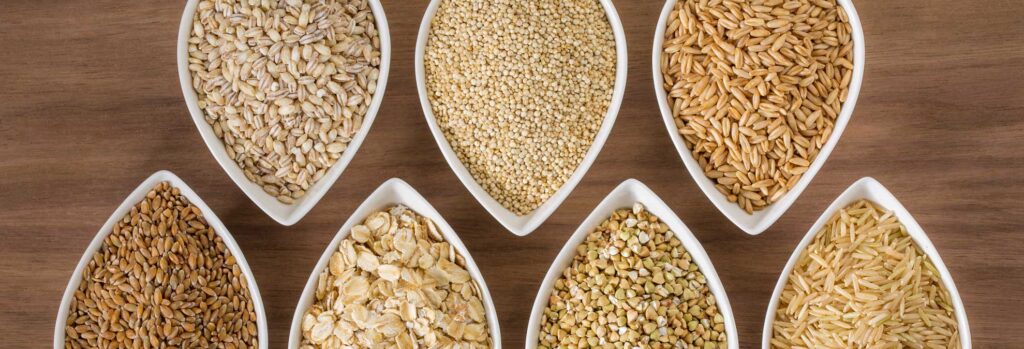
This week’s edition of National Nutrition Month is from Laura Speranzi, a WIC Nutritionist at Whitney Young Health. Laura is putting the spotlight on whole grains and how they are an important component to maintaining a healthy diet. (Grain bowls image credit: Vegan Liftz).
You keep hearing about eating more whole grains…so what is a whole grain?
It is a cereal grain that contains the germ, endosperm and bran. The bran is a multi-layered skin on the outside of the kernel. The germ is the embryo which has the potential to sprout new plants. The endosperm is the biggest part of the kernel and it is the germ’s food source. It provides energy to the plant so it can send roots down for essential water and nutrients.

Why should I eat whole grains?
-
Whole grains are a packed with nutrients!
- Nutrients including dietary fiber, protein, fiber, B vitamins, Iron, antioxidants, and trace minerals.
- B vitamins are important in bodily functions.
- Iron is used to carry oxygen in the blood.
- Magnesium is a mineral that is involved in more than 300 processes in the body.
- Selenium is important for regulating thyroid hormone action and a healthy immune system.
-
Dietary fiber can help you feel full and may lead to weight loss!
-
Dietary fiber may help improve your blood cholesterol levels and lower the risk for obesity, stroke, heart disease and type 2 diabetes.

How do I know what foods are whole grain?
-
Choose whole grain foods that contain one of the following ingredients first on the label’s ingredient list:
- Whole wheat
- Oatmeal
- Whole oats
- Brown rice
- Wild rice
- Whole- grain corn
- Whole- wheat barley
- Whole-wheat bulgur
- popcorn
All of these foods can be found in your local grocery stores, which makes it easy to add these healthy options into your daily diet!
